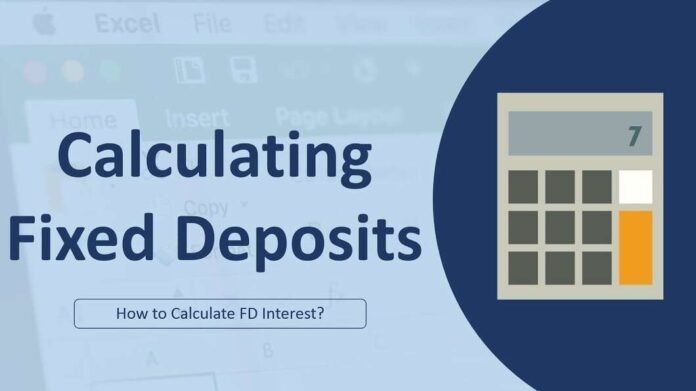In today’s volatile economic scenario, risk-taking in investment becomes a dubious task. And here’s where fixed deposits (FDs) come into the picture. Ensuring a fixed return, FDs provide the required safety blanket that every risk-averse investor desires. But how can one calculate the returns on a fixed deposit? Let’s uncover a simple trick using the FD calculator, a tool designed to ease the task of calculating returns on fixed deposits.
Understanding Fixed Deposits
Before diving into how to calculate FD returns, it’s crucial to have a clear understanding of what a fixed deposit is. In layman’s terms, a fixed deposit is a type of investment where the depositor deposits a certain sum of money for a predetermined period with a financial institution, like a bank or a non-banking finance company (NBFC). The financial institution then offers interest on the deposited sum for a fixed period, ensuring a guaranteed return at maturity.
What are Interest Rates on Fixed Deposits?
Interest rates on fixed deposits vary from one financial institution to another. They become the defining factor for the returns you will earn on your FD. Institutions revise interest rates fixed deposits periodically depending on the guidelines issued by the Reserve Bank of India and the state of the economy. Hence, it becomes pertinent to keep an eye on the current FD rates while opting for a fixed deposit.
The Magic Tool: FD Calculator
Now, here comes the role of the FD calculator, which is immensely instrumental in calculating the returns on your fixed deposit effectively and effortlessly. This online tool does not just help you to ascertain the total interest you will earn but can also present the maturity amount at the end of the said tenure.
Without the need for complex math and formulae, the FD calculator computes the returns in a few simple steps. All you need to do is input a few details like the amount of deposit, the tenure, and the FD interest rate. The calculator will quickly compute the returns, thereby saving you time and labor of lengthy calculations.
Calculating FD Returns: Walkthrough
Let’s understand the process of calculating FD returns using the FD calculator.
Assume you’ve deposited ₹1 lakh in an FD account for a period of 2 years. The rate of interest is 6.5% per annum, compounded annually.
Step 1: Input these given parameters into the FD calculator.
Step 2: The calculator uses this formula to calculate the maturity amount:
A = P (1 + r/n) ^ nt
Where:
– A is the maturity amount
– P is the deposit amount (₹1 lakh)
– r is the rate of interest (6.5%)
– n is the number of times that interest is compounded per time period (annually, in this case)
– t is the time the money is invested for (2 years)
Step 3: The calculator will output the maturity amount, i.e., ₹1, 13,225.62.
Step 4: To calculate the interest earned, subtract the investment amount from the maturity amount, i.e., ₹13,225.62 is your interest earned over 2 years on a deposit of ₹1 lakh.
Conclusion
FD calculators can reduce the hassle of complex calculations and provide you with quick insights into your prospective investment returns. Understanding FD rates in India is an essential part of this process, and using a reliable FD calculator will make the job easier. However, it’s important for investors to carefully analyse their financial goals and invest accordingly.
Disclaimer:
Calculations made using an FD calculator are indicative. They do not factor in changes in interest rates during the investment tenure and other market variables. Thus, investors must adequately assess the pros and cons of a financial product.
Summary:
A fixed deposit (FD) is a safe investment channel that assures guaranteed returns. To quickly calculate the prospective returns on an FD, one can employ a handy tool called the FD calculator. This tool facilitates easy calculations of returns on your FD by considering your deposit amount, tenure, and the interest rate fixed deposit. Clearing the cobwebs of complex calculations, an FD calculator provides you with the possible outcome of your investment. However, it is important to take into account variations in interest rates and other market variables before making a financial decision. Utilizing this simple trick can aid you in planning your finances adeptly, ensuring your wealth grows steadily.
















